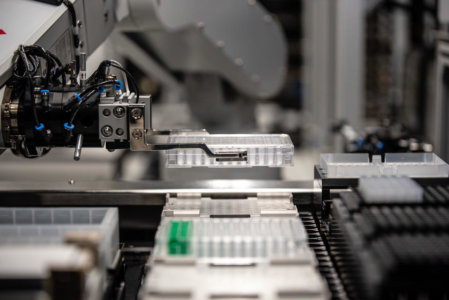Synthetic Genomics Inc (SGI) is a private company based in La Jolla, California that develops genomic-driven solutions to address global energy and environmental challenges.
The company started synthesizing and programing DNA in 2005, long before CRISPR technology greatly improved gene editing techniques. In some ways, the company’s activities appear to be like a sandpit for emergent behavior – for a variety newly-formed or re-programmed organisms that have commercial potential. It calls them “incubated technologies.” Another tool is Gibson’s Assembly, named after the company’s Vice President, DNA Technology, Dan Gibson, Ph.D. It is a molecular cloning method that joins multiple DNA fragments in a single, isothermal reaction. In other words, it is a biological printer capable of creating new organisms, including the first synthetic cell ever made.
The company also develops microbial cultivation technologies and monitoring approaches that reveal novel microorganisms, suites of new genes, and fermentation platforms for metabolic engineering of microbes for commercial bioenergy applications. In addition, SGI designs advanced biofuels with properties comparable to ethanol and biodiesel; harnesses photosynthetic organisms to produce value added products directly from sunlight and carbon dioxide; develops new biological solutions to enhance production and/or recovery rates of subsurface hydrocarbons; and develops high-yielding, disease resistant, and economic feedstocks. The company’s solutions help in improving the production of energy, chemicals, and pharmaceuticals, as well as enable carbon sequestration and environmental remediation.

Exxon Research Project
ExxonMobil and SGI recently announced a new phase in their joint algae biofuel research program that could lead to the technical ability to produce 10,000 barrels of algae biofuel per day by 2025. The project started in 2009.
The new phase of research includes an outdoor field study that will grow naturally occurring algae in several contained ponds in California. The research will enable ExxonMobil and SGI to better understand fundamental engineering parameters including viscosity and flow, which cannot easily be replicated in a lab. The results of this work are important to understand how to scale the technology for potential commercial deployment.
Additional work will be required to advance larger-scale production. Both companies are continuing with fundamental research on algae biology in their laboratories as the field study advances. ExxonMobil anticipates that 10,000 barrels of algae biofuel per day could be produced by 2025 based on research conducted to date and emerging technical capability.

“Our work with Synthetic Genomics on algae biofuels continues to be an important part of our broader research into lower-emission technologies to help reduce the risk of climate change,” said Vijay Swarup, vice president for research and development at ExxonMobil Research and Engineering Company. “The new outdoor phase is a critical next step in determining a path toward large-scale, commercial production.”
This outdoor research follows the companies’ years of fundamental biological research into understanding and improving algae oil production.
Pandemic Research
SGI is part the DARPA Pandemic Prevention Platform (P3) program aimed at establishing a system capable of halting viral pandemics within 60 days. As part of a Duke University-led collaboration that started in 2017, Synthetic Genomics contributes synthetic biology technologies to enable rapid delivery of anti-viral countermeasures.
The Duke Human Vaccine Institute has received a $12.8 million, 30-month grant from the U.S. Department of Defense, Defense Advanced Research Projects Agency (DARPA) to develop a system capable of halting viral pandemics within 60 days.
The program seeks to combine expertise in virology, immunology and clinical manufacturing to rapidly identify and respond to disease outbreaks such as SARS, pandemic influenza and Zika before they spread widely.
According to Crunchbase, SGI has raised $160 million in seven rounds of financing. Most recently, SGI raised $50 million equity investment by Lung Biotechnology in 2015. Lung Biotechnology previously invested $50 million in SGI preferred stock in 2014. In 2009, ExxonMobil announced a $600 million collaboration with SGI to research and develop next-generation biofuels.
SGI was founded in the spring of 2005 by J. Craig Venter. He is known for leading the first draft sequence of the human genome in the Human Genome Project. He also assembled the first team to transfect a cell with a synthetic chromosome.

